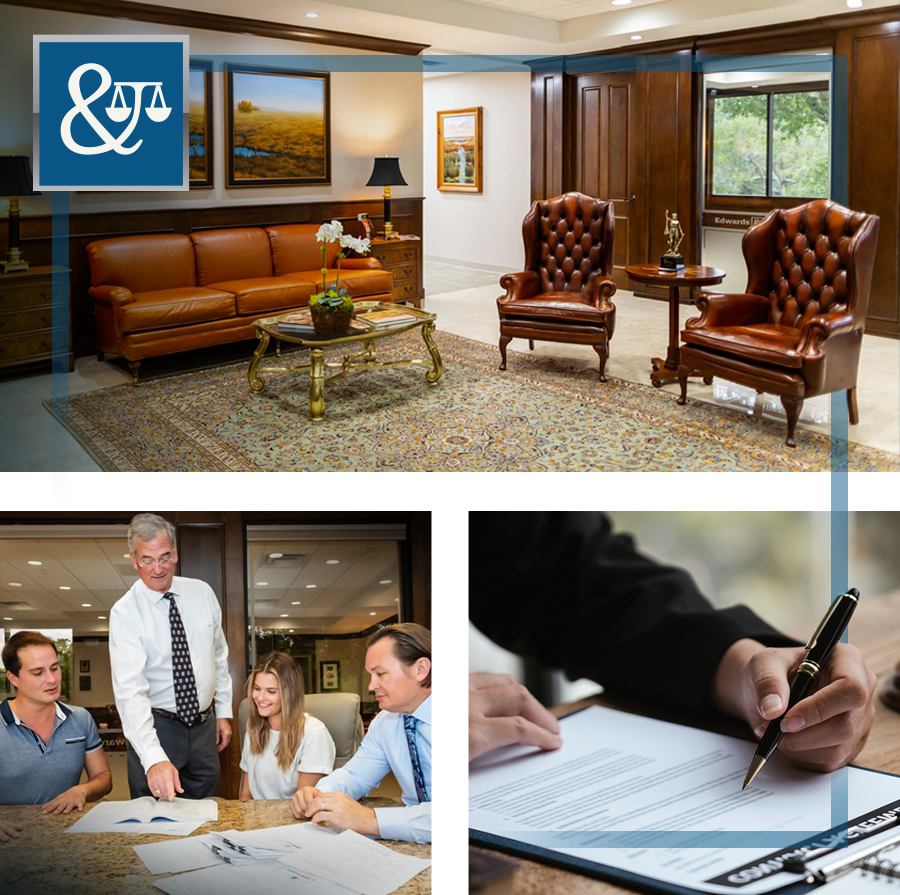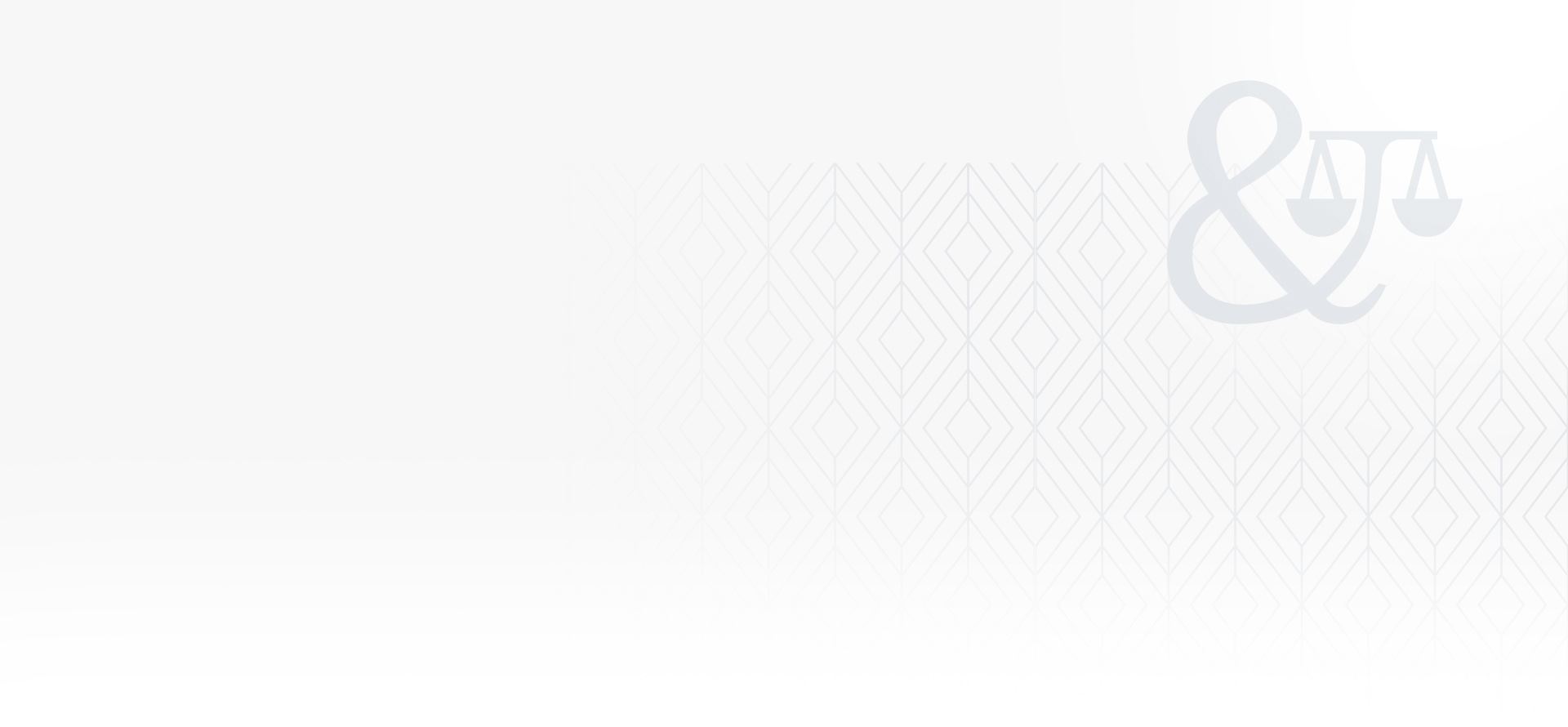Jacksonville Nursing Home Abuse Lawyers
Your Path to Healing for Your Loved One Starts Here
When the time comes, it is difficult to place a loved one in a nursing home, but the process is especially hard to deal with if you suspect nursing home abuse. It is very upsetting when your loved one is mistreated when you expected that you could trust the facility that you chose for them.
When these awful things happen, you may be able to pursue a claim. Our Jacksonville nursing home negligence attorneys at Edwards & Ragatz are here to help you seek justice and financial compensation.
If you suspect that your loved one is being abused or neglected in a Jacksonville nursing home, contact Edwards & Ragatz for a free consultation. Call (904) 295-1050 or send us a message online.


Common Signs of Nursing Home Abuse & Neglect
Sometimes the only way to know your loved one is being neglected or abused is to see the signs for them. There are several types of abuse that you should look for including physical abuse, emotional abuse, sexual abuse, financial exploitation, and healthcare fraud. Each of these types has several signs that you should look for to be able to detect nursing home abuse.
Physical Abuse
- Unexplained injuries, such as bruises, cuts, burns, or fractures
- Recurring injuries, frequent hospital visits, or injuries in various stages of healing
- Signs of restraint, such as marks on wrists or ankles
- Refusal by staff to allow visitors or seeing the resident alone
Emotional or Psychological Abuse
- Unusual behavior, such as mood swings, agitation, or withdrawal
- Fearfulness or anxiety, especially around certain staff members
- Depression (e.g., crying or lack of interest in previously enjoyed activities)
- Isolation/being kept away from other residents or activities
Sexual Abuse
- Bruising around breasts or genitals
- Unexplained STDs or infections
- Torn, stained, or bloody underclothing
- Fearfulness or withdrawal from physical contact
Financial Abuse
- Unexplained withdrawals from bank accounts
- Missing personal belongings or valuables
- Unusual changes in financial documents or wills
- Sudden changes in spending patterns or financial habits
Neglect
- Poor personal hygiene, such as unwashed hair, body odor, dirty clothing
- Malnutrition or dehydration (e.g., weight loss, dry skin, or frequent thirst)
- Untreated medical conditions, such as bedsores or infections
- Unsanitary living conditions (e.g., soiled bedding, dirty living space, or pests)
Verbal Abuse
- Insults, threats, or yelling directed at the resident
- Humiliation or ridicule
- Sudden changes in behavior indicating fear of speaking up
- Reports from the resident about being mistreated or spoken to harshly
Social Abuse
- Isolation from family and friends
- Restricting access to community activities or social interactions
- Intimidation preventing the resident from speaking out
- Unwillingness to speak in the presence of certain staff members
Lastly, if there is healthcare fraud, look out for your loved one getting the wrong dosage of medications, not enough staff to care for them, or duplicate bills for one service. All of these things would warrant a call to a nursing home abuse lawyer in Jacksonville.
Step 1: Gather Evidence
Now that you know the signs of this neglect, the first step is to get evidence of it.
That would include:
- Collecting medical records;
- Taking photos of obvious injuries; and
- Talking to the caregivers to get more information.
When you have this information and know that there is a chance they are being abused, your next step is to contact our experienced team of lawyers at Edwards & Ragatz to investigate the case thoroughly.
Our Jacksonville nursing home abuse attorneys will be able to collect evidence and protect it from disappearing as well as uncover more evidence that you may not have been aware of. We will make sure your case is strong and that you are going to be ready to bring it to civil court.
Step 2: Call an Attorney
The statute of limitations is the amount of time in which you have to bring your claim to receive compensation for injuries and damages. In most instances, you will have two years from the day you discover or should have discovered the nursing home abuse to bring your claim.
In rare circumstances, there may be extensions available to you to prolong your statute of limitations. However, if you are late bringing your claim, there is unfortunately nothing we can do to help you. Once you suspect abuse, you should not wait to call a lawyer because these cases take time.
Often, the liable party will be able to offer you a fast settlement offer to victims of nursing home abuse to try to get the case over quickly and with minimal impact to them financially. We urge you to consult with a lawyer before deciding to take any settlement offer.
As your team of Jacksonville nursing home abuse lawyers, there are several things that we would be able to recover for you in terms of your damages and injuries when we pursue compensation from the facility your loved one was in.
This may include compensation for:
- Physical therapy
- Medical treatment
- Pain and suffering
- Change in living arrangements
- Punitive damages
Choosing a Nursing Home Abuse or Neglect Lawyer
You can report nursing home abuse in the state of Florida by contacting the Health Care Administration (HCA). They will likely take your statement and open an investigation. Before reporting nursing home abuse, we would advise you to call your lawyer first to ensure you are collecting all the sufficient evidence.
In this video, Tom explains what to look for when selecting a nursing home abuse lawyer.
Florida Nursing Home Abuse FAQ
What Should I Do If I Suspect Nursing Home Abuse in Florida?
If you believe a loved one is being mistreated in a Florida nursing home, take these steps:
- Document everything – Take notes, photos of injuries, and gather medical records.
- Speak with nursing home management – Report concerns to supervisors or administrators.
- File a complaint – Report the abuse to the Florida Agency for Health Care Administration (AHCA) or Florida Department of Children and Families (DCF).
- Remove your loved one if necessary – If their safety is at risk, consider relocating them to a safer facility.
- Consult an experienced nursing home abuse lawyer – Legal action may be necessary to hold negligent facilities accountable and secure compensation for injuries.
Who Can Be Held Liable for Nursing Home Abuse?
Depending on the circumstances, multiple parties may be responsible for nursing home abuse or neglect, including:
- The nursing home facility – If poor hiring, training, or understaffing contributed to neglect or abuse.
- Individual staff members – If a caregiver intentionally harmed or neglected a resident.
- Third-party contractors – If outside medical professionals or service providers contributed to the harm.
- Pharmaceutical providers – If medication errors or overmedication were involved.
A thorough investigation can determine who is liable and what legal action is available.
Can I File a Lawsuit for Nursing Home Abuse in Florida?
Yes. If your loved one suffered abuse or neglect in a nursing home, you may be able to file a personal injury lawsuit to recover damages for:
- Medical expenses
- Pain and suffering
- Emotional distress
- Wrongful death (if the abuse led to a fatality)
Florida has strict laws protecting elderly residents, and facilities can be held accountable for failing to provide proper care.
How Long Do I Have to File a Nursing Home Abuse Claim in Florida?
In Florida, the statute of limitations for nursing home abuse lawsuits is generally two years from the date the abuse occurred or was discovered. However, exceptions may apply, such as:
- Fraud or concealment of abuse – The deadline may be extended if the facility hid evidence.
- Mental incapacity – If the victim was unable to recognize the abuse, additional time may be granted.
Because time limits vary, it’s best to consult an attorney as soon as possible to avoid losing your right to compensation.
How Can a Nursing Home Abuse Attorney Help?
An experienced nursing home abuse lawyer can:
- Investigate the facility and gather evidence of neglect or mistreatment.
- Interview witnesses, including staff and other residents.
- File claims with the appropriate state agencies to ensure regulatory action.
- Pursue compensation for medical bills, pain and suffering, and other damages.
- Hold negligent parties accountable, ensuring safer conditions for all residents.
Call For a FREE Consultation: (904) 295-1050
At Edwards & Ragatz, P.A., we have decades of experience fighting for victims of nursing home abuse, medical malpractice, and negligence. If you have questions about whether you have a case, we can help.
Contact our nursing home abuse attorneys in Jacksonville, FL today by calling (904) 295-1050 for your free consultation.

We Are Edwards & Ragatz
Explore What Sets Us Apart
-
Innovative & Strategic Legal StrategiesAt Edwards & Ragatz, we offer custom legal strategies tailored to your situation. Our approach ensures that we collect higher settlements than what an insurance adjuster might offer.
-
Committed to Quality Legal CounselOur commitment to a compassionate legal process means we speak with you on-site at the accident location, offer flexible meeting times, manage paperwork on your behalf, and provide consistent updates.
-
Proven Legal Experience & Advocacy
With more than 150+ years of combined legal experience, we have taken on multiple million-dollar corporations and received recoveries through the relentless pursuit of justice.